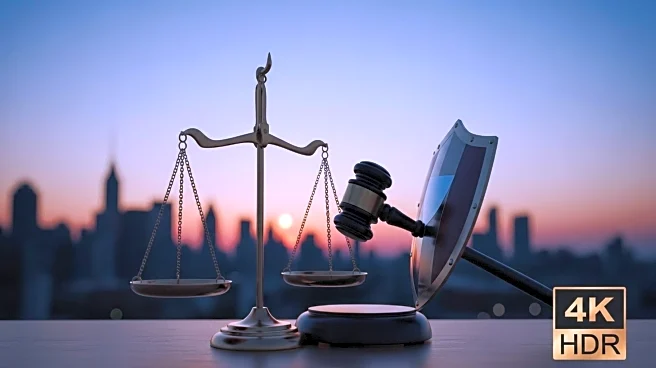What is the story about?
What's Happening?
Washington, D.C.'s top elected officials have expressed concerns over President Trump's federal law enforcement surge, arguing it undermines public trust and threatens the city's autonomy. During a House Oversight Committee hearing, D.C. Attorney General Brian Schwalb criticized the deployment of masked agents and National Guard troops, stating these measures do not effectively address crime and instead harm community-police relations. D.C. Council Chairman Phil Mendelson labeled the surge as a 'manufactured crime crisis' to justify federal intervention. Despite claims of reduced crime rates, some Republicans on the committee questioned the accuracy of D.C.'s crime statistics.
Why It's Important?
The federal law enforcement surge in Washington, D.C. has significant implications for the city's governance and public safety strategies. Critics argue that such interventions could erode local autonomy and trust between communities and law enforcement. The debate highlights broader tensions between federal and local authorities, particularly in areas with historically low crime rates. The outcome of this dispute may influence future federal involvement in local policing and impact public policy regarding crime prevention and community relations.
What's Next?
D.C. officials are urging Congress to restore funding for local judicial vacancies and support a new psychiatric residential treatment facility for youth. The ongoing investigation into D.C.'s crime statistics may further influence the narrative around the effectiveness of the federal surge. As the city prepares for the 250th anniversary of the U.S., local leaders aim to ensure Washington, D.C. is safe and welcoming for residents and visitors alike.

















